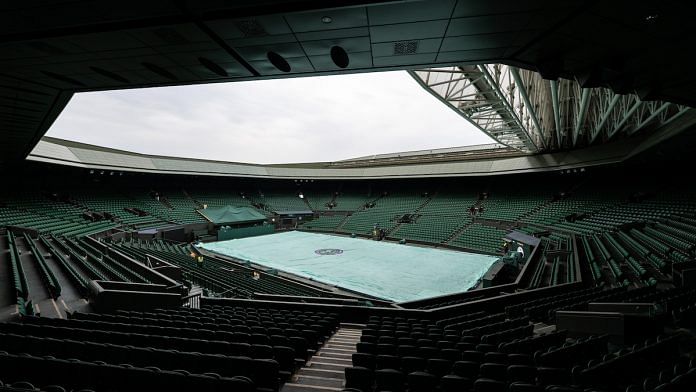The oldest tennis tournament in the world has come up with updates this year to keep up with world politics. The 2022 Wimbledon, starting 27 July, has banned players from Russia and Belarus due to the invasion of Ukraine and the atrocities that followed. Then the Association of Tennis Professionals (ATP) and the Women’s Tennis Association (WTA), responsible for awarding points to most tennis tournaments, decided to take away ranking and seed points from this year’s Wimbledon, essentially making it an exhibition tournament.
The biggest sufferers of this decision? Young tennis players who really need those points. In the last few years, tennis has seen several underdogs defeat the titans — from Emma Raducanu and Coco Guaff in women’s category to Carlos Alcaraz in the men’s category.
A different victim
Bigger players, despite their disagreement with Wimbledon’s decision, remain mostly unaffected by the lack of rankings in this edition of the tournament — they don’t have much to prove. Andy Murray went on to say that Wimbledon “will never be an exhibition and will never feel like an exhibition” with or without ranking points.
Yet, the younger players, who will most likely not relate to Murray’s feelings, rely on the tournament. Rankings and seedings in tennis remain crucial for its players, especially at the beginning of their careers for them to be able to move ahead in the sport. And a system that depends so heavily on rankings requires players to constantly play and win matches for those points.
Recently, tennis has seen a considerable number of young tennis players upsetting tournament results, with 19-year-old Emma Raducanu (ranked no. 11) winning her first Grand Slam at the 2021 U.S. Open, and 18-year-old Coco Guaff (ranked no. 12), who beat Venus Williams in 2019, reaching the final of the French Open this year. It shows the incredible promise young players have.
Players that the world may not be as familiar with, such as China’s Qinwen Zheng (no. 46) or Canadian Clara Tausen (no. 54), have achieved great feats in junior renditions of international tennis tournaments, with Tausen beating Emma Raducanu in 2019.
Even in men’s tennis, players such as Jannik Sinner (no. 9), and 19-year-old Holger Rune (no. 28) represent a category of players who are bound to get ahead in the sport, and with major players like Roger Federer (who is not playing the tournament this year) slowly reaching retirement. Till then, they need to make sure to get ahead by getting international ranking.
Also read: Naomi Osaka put the ball in Roland Garros’ court to make tennis better. It missed
A bit too far
Sports presents itself as an unpredictable field, with surprising players who reach great heights, which is possible in this year’s Wimbledon too.
These results in tennis reinforce the fact that the prime in a player’s career begins before they even turn 20. Young players who have already turned pro in tennis are not looking for a showcase. They have major sponsorships and audiences that tune in simply to watch them. What they need, is an improvement in ranking, which they can get only by playing tournaments that will award them those points.
Historically, symbolic gestures such as the black armband, taking the knee or a change in jerseys in sports have gone a long way in making socio-political statements. This year’s Wimbledon went a bit too far, though. The British tennis tournament in trying to maintain geopolitics is fiddling with the careers of blameless people. Not only players from Russia and Belarus, but younger players in Wimbledon lose the opportunity to make a significant mark in their careers due to the rush of blood that led to Russia’s impulsive actions on Ukraine.
Srushti Joshi is an intern at ThePrint. Views are personal.



